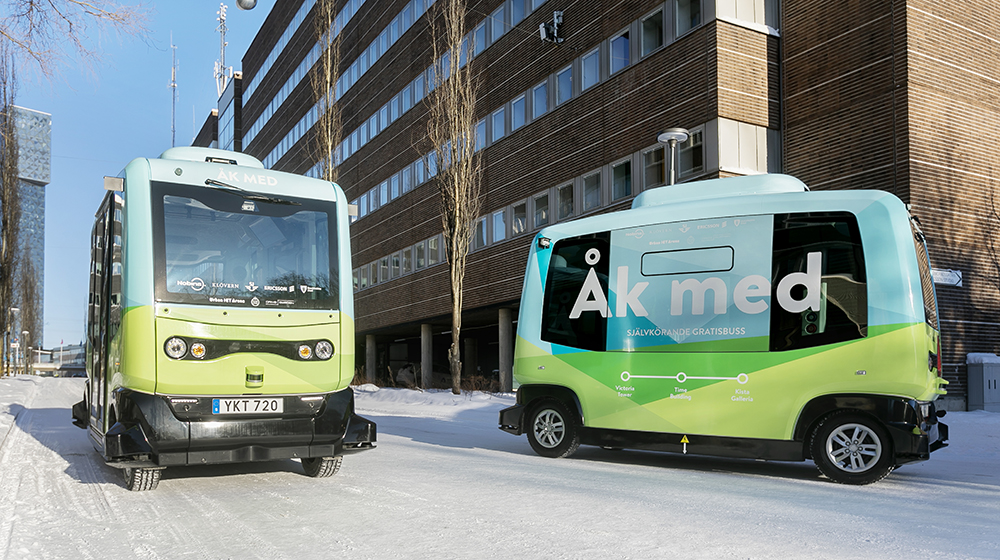New project with Nobina to investigate autonomous buses without operators

ITRL is joining forces with Nobina Technology in a new project to examine autonomous buses without a standby driver on-board. The project includes partners such as Telia, SL/Region Stockholm, Järfälla kommun, and Observit.
FOKA, short for ”Forskning inom Operatörslös Körning med Autonoma bussar”, recently secured funding through Vinnova’s FFI programme. The project aims at building knowledge on potentials and barriers for integrating autonomous vehicles without drivers in future public transport systems, and to understand how shared transport solutions can become preferred by more people.
One of the key factors for increasing travelling by public transport is higher availability, providing routes that go often and convenient bus stops close enough to your location. Since the cost of drivers doesn’t change no matter what size the bus is, smaller buses are usually economically unsustainable, making more populated areas and bigger roads prioritized over small ones. One solution to this problem is to provide autonomous buses that can cover new areas and increase the amount of routes without the cost of a driver.
Currently all autonomous vehicles in Sweden require an operator on-board to step in when problems arises that the vehicle itself cannot solve, for example in case of an accident or road work. However, a recent change in policy have opened up for permits to investigate autonomous buses without operators in live traffic.
The project will also address research questions in autonomous vehicles, policy, traffic control towers, data usage, and communication between humans and technology. As well as to deliver demonstrations in real traffic with an electric bus in Stockholm and contribute to integrating autonomous vehicles into public transport.
FOKA started in April 2021 and is expected to last until October 2023.

